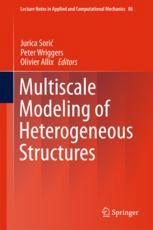

Most ebook files are in PDF format, so you can easily read them using various software such as Foxit Reader or directly on the Google Chrome browser.
Some ebook files are released by publishers in other formats such as .awz, .mobi, .epub, .fb2, etc. You may need to install specific software to read these formats on mobile/PC, such as Calibre.
Please read the tutorial at this link: https://ebookbell.com/faq
We offer FREE conversion to the popular formats you request; however, this may take some time. Therefore, right after payment, please email us, and we will try to provide the service as quickly as possible.
For some exceptional file formats or broken links (if any), please refrain from opening any disputes. Instead, email us first, and we will try to assist within a maximum of 6 hours.
EbookBell Team

0.0
0 reviewsThis book provides an overview of multiscale approaches and homogenization procedures as well as damage evaluation and crack initiation, and addresses recent advances in the analysis and discretization of heterogeneous materials. It also highlights the state of the art in this research area with respect to different computational methods, software development and applications to engineering structures.
The first part focuses on defects in composite materials including their numerical and experimental investigations; elastic as well as elastoplastic constitutive models are considered, where the modeling has been performed at macro- and micro levels. The second part is devoted to novel computational schemes applied on different scales and discusses the validation of numerical results. The third part discusses gradient enhanced modeling, in particular quasi-brittle and ductile damage, using the gradient enhanced approach. The final part addresses thermoplasticity, solid-liquid mixtures and ferroelectric models. The contents are based on the international workshop “Multiscale Modeling of Heterogeneous Structures” (MUMO 2016), held in Dubrovnik, Croatia in September 2016.